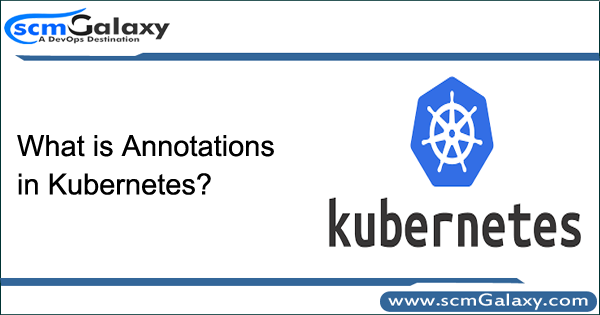

What is Annotations in Kubernetes?
There are two way using you can attach metadata to Kubernetes objects.
- labels
- annotations
Kubernetes annotations is used to attach arbitrary non-identifying metadata to objects. Clients such as tools and libraries can retrieve this metadata.
In contrast, annotations are not used to identify and select objects. The metadata in an annotation can be small or large, structured or unstructured, and can include characters not permitted by labels.
Annotations, like labels, are key/value maps:
apiVersion: extensions/v1beta1
kind: Deployment
metadata:
annotations:
kompose.cmd: ./kompose convert
kompose.version: “”
FORMAT
"metadata": {
"annotations": {</p>
"key1" : "value1",</p>
"key2" : "value2"</p>
}Code language: PHP (php)Here are some examples of information that could be recorded in annotations:
- Build, release, or image information like timestamps, release IDs, git branch, PR numbers, image hashes, and registry address.
- Pointers to logging, monitoring, analytics, or audit repositories.
More
https://kubernetes.io/docs/concepts/overview/working-with-objects/annotations/
I’m a DevOps/SRE/DevSecOps/Cloud Expert passionate about sharing knowledge and experiences. I am working at Cotocus. I blog tech insights at DevOps School, travel stories at Holiday Landmark, stock market tips at Stocks Mantra, health and fitness guidance at My Medic Plus, product reviews at I reviewed , and SEO strategies at Wizbrand.
Do you want to learn Quantum Computing?
Please find my social handles as below;
Rajesh Kumar Personal Website
Rajesh Kumar at YOUTUBE
Rajesh Kumar at INSTAGRAM
Rajesh Kumar at X
Rajesh Kumar at FACEBOOK
Rajesh Kumar at LINKEDIN
Rajesh Kumar at PINTEREST
Rajesh Kumar at QUORA
Rajesh Kumar at WIZBRAND

